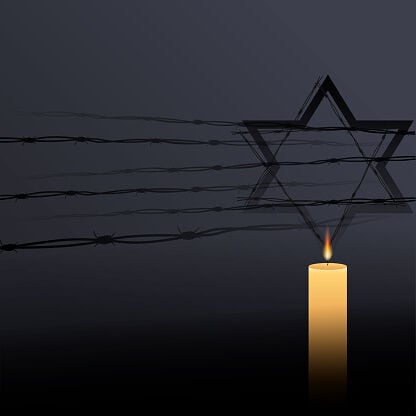PHOENIX — Some Jewish residents are trying to legally block use of the gas chamber for future executions, calling it barbaric, cruel and unusual — and a painful reminder of the Holocaust for survivors who live here.
A lawsuit filed by the Jewish Community Relations Council of Greater Phoenix and two of its members acknowledges that Arizona voters in 1992 eliminated the use of lethal gas, replacing it with lethal injections. That followed gruesome reports of the execution of Don Harding, who took 11 minutes to die.
But that 1992 constitutional amendment, approved by a ratio of more than 3-to-1, preserved the right for those already on death row to choose either option. There are 17 there now who qualify.
They include Frank Atwood, convicted of the 1984 slaying of 8-year-old Tucsonan Vicki Lynne Hoskinson, and Clarence Dixon, who killed an Arizona State University student in 1978.
The plaintiffs say they are not asking a judge to rule on the legality of the death penalty, but to outlaw this particular method.
The lawsuit contends the use of lethal gas violates a state constitutional provision against cruel and unusual punishment.
It also seeks to prevent the state from spending more taxpayer dollars to expedite executing people with the same cyanide gas, called Zyklon B, that the Nazis used to kill millions of Jews.
The lawsuit includes descriptions by witnesses who attended various executions, including the last two in Arizona.
“The witnessed horrors included strenuous convulsions, agonizing gasps, agonized shrieking and thrashing, and one individual in so much pain he repeatedly smashed his head into a metal pole,’’ the lawsuit says.
The whole process is “particularly harrowing’’ for Jews and about 80 survivors of the Holocaust who live in Arizona, it says.
The plaintiffs have standing to sue, the lawsuit says, because the state is using their tax dollars to purchase the chemicals, as the Department of Corrections, Rehabilitation and Reentry did as recently as 2020 in preparation for their possible use.
The suit cites documents, obtained through public records requests, showing the department purchased a potassium cyanide brick for $1,529 in December 2020 and sodium hydroxide and sulfuric acid days later for $687. Dropping the cyanide into the acid creates the lethal gas.
The state has also been spending money to test and make repairs to the gas chamber, the lawsuit notes.
To allow cyanide gas executions to take place means “effectively forcing them (the plaintiffs) to subsidize and relive unnecessarily the same form of cruelty used in World War II atrocities,” it says. “Many of these survivors are horrified at being taxed to implement the same machinery of cruelty that was used to murder their loved ones.”
The lawsuit says Arizona is one of seven states that still allow the use of lethal gas. And in three of those states, the method is allowed only if courts ban the use of lethal injection, it says.
There was no immediate response from Attorney General Mark Brnovich, who has to defend the state against in the lawsuit.





